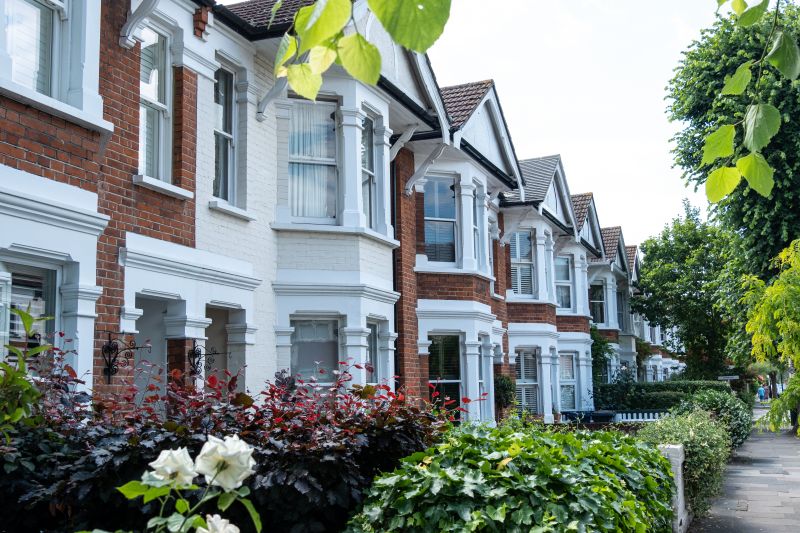Despite ongoing economic challenges across 2023, including higher interest rates and the cost-of-living pressures, the Northern Ireland housing market continues to show price resilience and stability in the fourth quarter of 2023, according to the latest research from Ulster University.
Findings from the latest Northern Ireland Quarterly House Price Index emphasise that prices remained stable and continued to edge higher throughout 2023 due to an underlying resilience in the market. This trend continued in Q4 of 2023 as the average house price in Northern Ireland increased by 0.4% reaching £207,010. Annually, prices increased by 2.9% compared to Q4 of 2022.
Research shows signs of slowing market activity with transactions at their lowest level over the year, decreasing 26% on the previous quarter. While the seasonal effects of Christmas and New Year traditionally see a slowing of market activity, a slight dip in buyer confidence remained in the last quarter of 2023 as the uncertainty of interest rates acted as a key factor for mortgage holders and prospective buyers alike.
Encouragingly, the recent decision to keep the interest rate stable at 5.25% is seemingly paving the way for more attractive mortgage deals. The latest data reveals minor declines in the cost of fixed, variable, and tracker rate mortgages during the final quarter of the year, indicating this trend could continue softening rates throughout 2024. Lenders are motivated to build their loan books and attract customers, meaning that new borrowers or those re-mortgaging during 2024 may benefit from appealing deals and rates available.
The Quarterly House Price Index is produced by Ulster University in partnership with the Northern Ireland Housing Executive and Progressive Building Society analysing market performance during the fourth quarter of 2023 (October, November, and December).
Key market trends from the report;
- The terrace/townhouse sector exhibited the highest price growth of 1.6% with terrace dwellings averaging £125,738 and townhouses £190,845
- The detached sector observed growth of 1.1% and the average price now £302,717
- Semi-detached houses remain the most common property type comprising 36% of all transactions with an average price of £195,780
- The apartments sector displayed a decrease of -1.7% and the average price stands at £155,452
Dr Michael McCord, Reader in Real Estate valuation and lead researcher shared his thoughts on the latest findings:
“The housing market continued to display nominal growth in the last quarter of 2023 of 0.4%, and ongoing price stability and resilience against the wavering economic and political backdrop. There were however clear signs of a slowdown in buyer enquiries and a reduction in sales transactions over the quarter, a trend which was evident across the entirety of 2023 as potential buyers weathered the volatile interest rate and mortgage interest rate movements. The end of 2023, and beginning of 2024, has seen a more settled interest rate environment which has transcended into the mortgage market with lenders beginning to reduce rates and provide more attractive deals. With the direction of travel for interest rates arguably on a downward trend throughout 2024, allied with reducing inflation, the housing market should exhibit increased buoyancy within the first half of 2024.”
Ursula McAnulty, Head of Research with the Housing Executive, which commissions the research, said:
“Despite a challenging economic environment in 2023, house prices in Northern Ireland have maintained stability, with a modest 0.4% increase from Q3 2023 to Q4 2023, and an annual weighted price increase of 2.9% in comparison to Q4 2022. This strong end to 2023 in terms of pricing levels is likely to continue into 2024, with the vast majority of agents predicting consistent pricing structures into the new year. The restoration of a devolved government in Northern Ireland should provide for a more stable political environment, and we look forward to continue working with partners across the housing field.”
Michael Boyd, Chief Executive of Progressive Building Society said:
“While facing a number of headwinds, the Northern Ireland housing market once again posted a resilient performance in the last quarter of 2023, highlighting a strong demand and supply picture. Despite both quarterly and annual gains, there is little doubt borrowers remain under pressure in the face of continued cost-of-living pressures linked to recent inflationary pressures and a still-high interest rate environment. However, while transaction volumes have waned, a lack of new supply is likely to underpin house prices in the coming months. In addition, the sharp slide in inflation in recent months and moribund interest rate environment are likely to offer further support, as is the boost to sentiment from the resumption of the Executive at Stormont.”
To read the full report findings, visit Northern Ireland Quarterly House Price Index - Q4 2023 (ulster.ac.uk)

